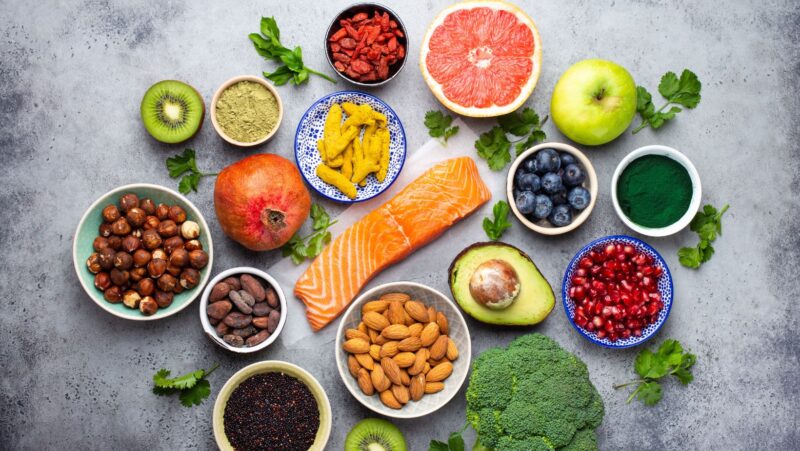
Your heart rate refers to the number of times your heart beats per minute. It’s influenced by various factors, including the foods that you eat. Your diet and nutrition can increase or decrease your heart rate, and it’s important to learn about the way your heart responds to different nutrients.
Foods That Increase Your Heart Rate
Below, we have covered the types of foods that impact your heart rate and how they elicit their effects.
Caffeine-containing foods
Caffeine causes the release of cortisol, a hormone that stimulates the nervous system and makes the heart beat faster than usual to pump more blood around the body.
Caffeine is found in coffee, tea, and energy drinks. It’s also found in smaller amounts in chocolate. Excessive intake can cause jitters, anxiety, and migraines, and caffeine is best avoided if you have pre-existing heart disease.
Sugary foods
Cookies, cakes, candy bars, chocolate bars, and pastries are high in added sugars. Consuming these sugary snacks can spike your blood glucose, elevate your plasma insulin level, and increase your heart rate.
High sugar intake can increase the risk of type 2 diabetes and cardiovascular disease, contributing to further heart issues and eventually failure of heart. This eventuality can be caught in time by looking out for symptoms like chest pain or discomfort. swelling of legs and ankles, pain or discomfort in the jaw, neck, or back etc.
Spicy foods
Spicy foods, especially those containing chili peppers, can cause heartburn and a short-term increase in heart rate.

This is due to a substance called capsaicin, which releases adrenaline, a hormone that temporarily increases heart rate and blood pressure in response to stressors.
Sodium-rich foods
Foods high in sodium, such as junk foods, takeaways, and ready meals, can increase water retention in the body. This leads to a higher blood volume and higher blood pressure, which causes the heart to pump harder and results in a faster-than-normal heart rate.
Chronic excessive sodium consumption increases the risk of hypertension (high blood pressure) and cardiovascular disease, which can increase average heart rate.
How to Maintain a Healthy Heart Rate
Thankfully, there are several things you can do to keep your heart healthy and your heart rate stable. Here are some helpful lifestyle habits you can adopt to maintain a healthy heart.
Exercise regularly
Regularly exercise is one of the most effective ways to improve your heart health and maintain a stable heart rate. Exercise strengthens the myocardium (heart muscle)c enabling it to maintain a steady rhythm over time.

Incorporate aerobic exercises into your routine, such as walking, swimming, swimming, and cycling. Your heart will also benefit greatly from a couple of strength training (weightlifting) sessions a week.
Heart-healthy foods
Foods that contain high amounts of fibre or omega-3 fatty acids are great for the heart. Fibre can help with blood glucose regulation, lowers blood pressure, and lowers blood cholesterol. It’s found in whole grains, fruits, beans, legumes, nuts, and seeds.
Omega-3s are unsaturated fatty acids found in avocados, nuts, seeds, and oily fish. They lower inflammation in the cardiovascular system and help lower the heart rate. You can learn more about foods to lower heart rate here.
Stress management
Chronic stress can elevate your heart rate and increase the risk of future cardiovascular issues like atrial fibrillation or arrhythmias. Practicing regular stress-reducing techniques, such as meditation, deep breathing, and gentle yoga, can promote a healthier heart rate.a










